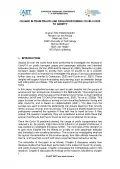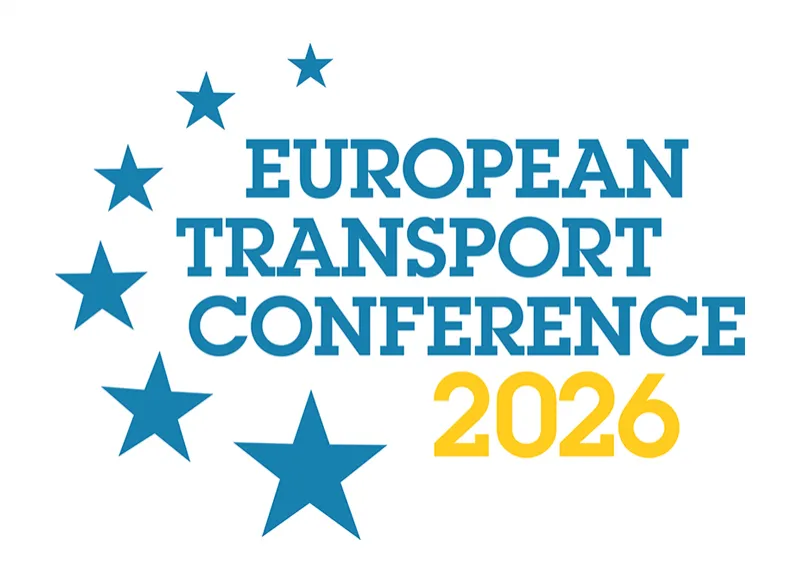-
Past ETC Papers

Browse, search and view papers from the past AET Conferences.
-
Members' Area

AET promotes networking and exchange of ideas, information and opportunities amongst members.
Conference Papers 2022
Milan, Italy
ETC Conference Papers 2022
Change in train travelling behaviour during and after Covid-19 due to anxiety
Seminar
Day 1 (7 Sep 2022), Session 3, COVID-19 IMPACTS 3, 16:30 - 18:00
Status
Accepted, documents submitted
Submitted by / Abstract owner
Gudrun Birta Hafsteinsdottir
Authors
Gudrun Birta Hafsteinsdottir (Delft University of Technology),
Renate van der Knaap (Delft University of Technology),
Menno de Bruyn (NS),
Mark van Hagen (NS),
Niels van Oort (Delft University of Technology)
Short abstract
This research uses longitudinal surveys to gain insights into the effects of anxiety on train travelling behaviour during and after Covid-19. Findings show a negative effect on attitude, current and future travel behaviour.
Abstract
Studies all over the world have been performed during Covid-19 to investigate the characteristics of anxious public transport travellers and the reduction in public transport usage. This indicates that reduction in public transport usage related to anxiety from Covid-19 is a problem everywhere and important to investigate this group further.
For this project, longitudinal surveys are used to gain insights into the groups of anxious and non-anxious train travellers in the Netherlands. This project is part of a larger project, which focuses on the impacts Covid-19 has on train travelling behaviour, by NS and TU Delft (Van Hagen et al. (2021). Covid-19 and train travel behavior. Paper presented at the European Transport Conference). This subproject focuses on the effects of anxiety on train travelling behaviour during and after Covid-19. The data from the surveys are used to divide the participants into groups based on their anxiety levels: anxious, neutral, and non-anxious. The anxious group consists of people that do not feel free to travel by train during Covid-19 and the non-anxious group does feel free to travel by train during Covid-19. To analyse the characteristics and travel behaviour, the data from the survey of April 2021 are used, and statistical tests such as chi-square test and classification tree analysis are used to analyse the differences between the groups.
The main purpose of this project is to investigate the group of anxious train travellers during Covid-19 to gain more insights into their characteristics, attitude, and behaviour. This study finds that the main factors that influence anxiety levels are age, gender, and vaccination status. Our research shows that females and older people are more likely to be anxious. As a result, a typical profile of an anxious person is a female, older than 25 years old and not vaccinated. Furthermore, a non-anxious person is likely to be male, 25 years old or younger, and fully vaccinated.
Since attitude has a strong relationship with (travel) behaviour, the anxious group is compared to the non-anxious group to investigate the effects of anxiety on attitude and travel behaviour. The results show that anxiety has a negative effect on attitude which leads to less train usage, both current and expected usage in the future. Anxious people generally tend to have a negative attitude towards the train, while non-anxious people usually have a positive attitude towards the train. In current train travelling behaviour, anxiety has the effect of people travelling less, and are more likely to not travel at all. For future expected travel, anxious people are more likely to plan to travel less than non-anxious people.
The number of anxious people fluctuates over time and seems to be related to the number of cases or hospitalizations. The size of the anxious group is higher when there are peaks in number of cases and hospitalizations, and lower when things are calmer. Additionally, vaccinations seem to influence the number of anxious people as well, where the size of the anxious group reduces when a lot of people in the Netherlands are fully vaccinated. During the first year (April 2020 to April 2021), the anxious group has been between 40 and 70% of train travellers. It can be assumed that there will still be a group of people that are anxious after Covid-19, because in September 2021, when cases had been low for some time, 20% of train travellers were still anxious and a small group of 6% was still feeling very anxious.
The results of this paper help to identify the anxious group and establish the effect of anxiety on attitude and behaviour, which helps with designing future timetables and planning rolling stock purchases. For future research, it is recommended to look further into the relationship between the number of anxious people and the number of cases or hospitalizations as that relationship can help predict train usage in the future. Furthermore, it is recommended to investigate why people are still feeling anxious even after a time of low number of cases and no restrictions. That information can help with reducing the size of the anxious group and increase train usage.
Programme committee
Rail Policy and Planning
Topic
Behaviour Change – the impacts of the climate emergency and COVID-19 on long term travel patterns
Documents:

Association For
European Transport
Forester House
Doctors Lane
Henley-in-Arden
Warwickshire, UK
B95 5AW
+44 (0) 15 64 793552
VAT number: 710 1866 64
Conference Supporters & Endorsers




Legal Entity
The Association for European Transport is registered as an Association ('vereniging') with the Chamber of Commerce for Haaglanden in The Netherlands under company number 27170096.
Built on Zenario




